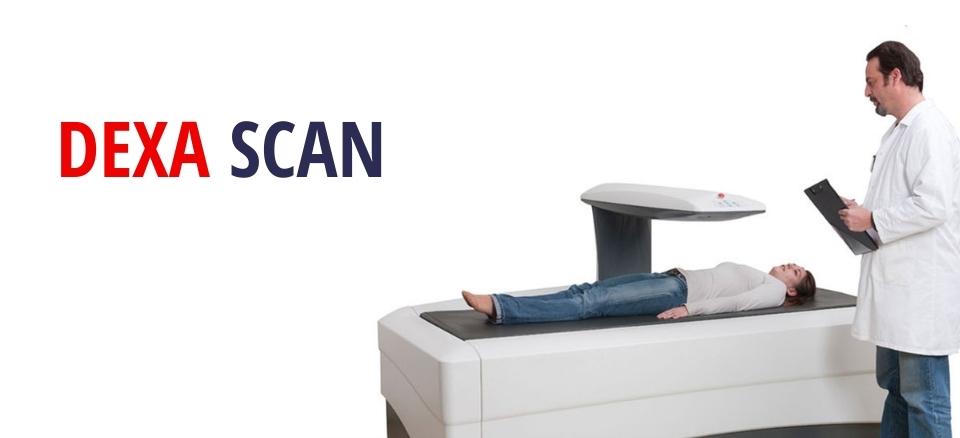In the realm of medical diagnostics, imaging technologies like Dexa scans and CT scans play a crucial role. They provide critical insights into our health, allowing for early detection and management of various conditions. This guide delves into the importance of Dexa scans for bone density and how to locate the best CT scans near you for comprehensive health evaluations.
Understanding Dexa Scans
What is a Dexa Scan?
A Dexa scan, or Dual-Energy X-ray Absorptiometry scan, is a medical imaging test that measures bone mineral density (BMD). It is considered the gold standard for diagnosing osteoporosis and assessing fracture risk. The scan uses two X-ray beams at different energy levels to capture images of bones, typically the spine, hip, and forearm.
Benefits of Dexa Scans
Dexa scans offer numerous benefits, including:
- Early Detection: They help detect osteoporosis before a fracture occurs.
- Fracture Risk Assessment: By measuring BMD, they can predict the risk of fractures.
- Monitoring Treatment: Dexa scans can track the effectiveness of osteoporosis treatments.
- Non-Invasive: The procedure is painless and quick, usually completed within 10-20 minutes.
How to Prepare for a Dexa Scan
Preparing for a Dexa scan is straightforward. Patients should avoid taking calcium supplements 24 hours before the test. Wearing loose, comfortable clothing and avoiding metal objects like belts, zippers, and jewelry is recommended to ensure clear imaging.
The Procedure: What to Expect During a Dexa Scan
During a Dexa scan, you will lie on a padded table while a scanning arm passes over your body. The machine sends low-dose X-rays through the bones, which are then captured on the other side. The data collected is analyzed by a computer to generate detailed images and bone density measurements.
Finding CT Scans Near You
What is a CT Scan?
A CT scan, or Computed Tomography scan, is a sophisticated imaging procedure that combines X-rays taken from different angles to create cross-sectional images of the body. It provides detailed views of bones, blood vessels, and soft tissues, making it invaluable for diagnosing various conditions.
Benefits of CT Scans
CT scans are instrumental in:
- Diagnosing Diseases: They help identify conditions like tumors, infections, and blood clots.
- Guiding Treatments: CT scans assist in planning and monitoring treatments, including surgeries and radiation therapy.
- Evaluating Injuries: They are crucial for assessing trauma injuries, especially to the head, chest, and abdomen.
- Detecting Abnormalities: CT scans can spot abnormalities not visible on regular X-rays.
How to Prepare for a CT Scan
Preparation for a CT scan may vary based on the type of scan. Generally, patients may need to:
- Fasting: Avoid eating or drinking for a few hours before the scan.
- Removing Metal Objects: Similar to Dexa scans, remove any metal objects to avoid interference.
- Contrast Material: In some cases, contrast material may be administered orally or intravenously to enhance image clarity.
The Procedure: What to Expect During a CT Scan
During a CT scan, you will lie on a motorized table that slides into a cylindrical scanner. The X-ray tube rotates around your body, capturing multiple images. The entire process is usually completed within 30 minutes to an hour.
Locating the Best CT Scans Near You
Research and Reviews
Start by researching local imaging centers and hospitals. Look for facilities with positive reviews and high ratings for their diagnostic services. Websites like Google Reviews, Yelp, and healthcare-specific review platforms can provide valuable insights.
Consultation with Healthcare Providers
Consult your primary care physician or specialist. They can recommend reputable imaging centers based on your specific health needs and their professional network.
Insurance Coverage
Ensure the facility you choose is covered by your health insurance plan. Contact your insurance provider to get a list of in-network imaging centers to minimize out-of-pocket expenses.
Advanced Technology and Expertise
Opt for centers equipped with the latest imaging technology and staffed by experienced radiologists. Advanced equipment ensures higher image quality, while skilled professionals enhance the accuracy of diagnoses.
Conclusion
Dexa scans and CT scans are pivotal tools in modern medical diagnostics. Dexa scans provide critical information about bone health, helping prevent and manage osteoporosis. CT scans offer comprehensive insights into various health conditions, aiding in accurate diagnosis and effective treatment planning. By understanding these procedures and knowing how to find the best CT scans near me, you can take proactive steps towards better health management.
FAQs
1. How often should I get a Dexa scan?
The frequency of Dexa scans depends on individual risk factors. Generally, women over 65 and men over 70 should get a Dexa scan every two years. Those with higher risk factors may need more frequent scans.
2. Are there any risks associated with Dexa scans?
Dexa scans involve minimal radiation exposure, which is significantly lower than that of a standard chest X-ray. The procedure is considered safe, but pregnant women should avoid it unless absolutely necessary.
3. Can CT scans detect cancer?
Yes, CT scans can help detect cancer by providing detailed images of tumors and abnormal growths. They are often used in cancer diagnosis, staging, and treatment planning.
4. How long does it take to get results from a CT scan?
Results from a CT scan are typically available within 24 to 48 hours. Your doctor will review the images and provide a diagnosis or recommend further tests if needed.
5. Do I need a referral for a CT scan?
In most cases, a referral from a healthcare provider is required to schedule a CT scan. This ensures the scan is medically necessary and covered by insurance.
By leveraging the benefits of Dexa and CT scans, you can gain invaluable insights into your health and work with your healthcare provider to develop effective treatment plans.




